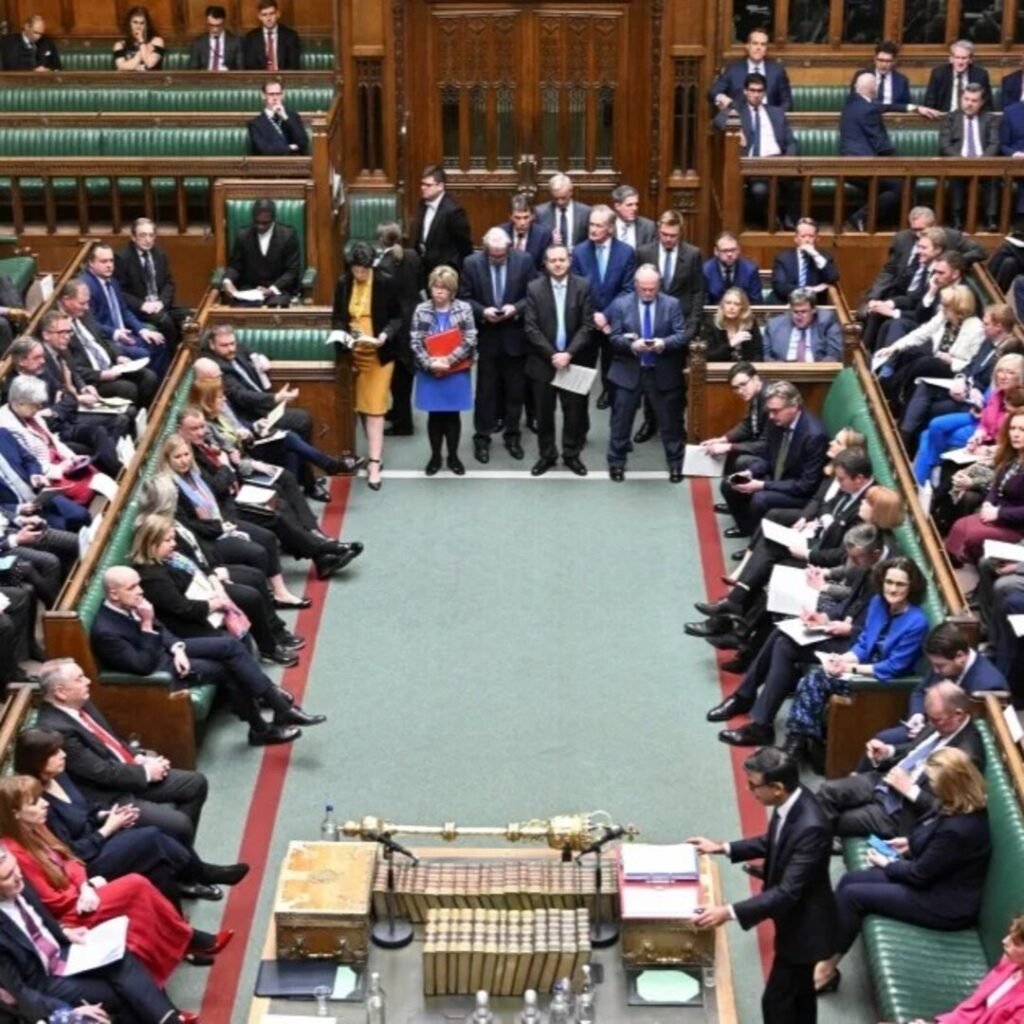Chaos engulfed the UK’s House of Commons as Speaker Lindsay Hoyle faced backlash over his handling of a crucial vote regarding support for a ceasefire in Gaza.
Both the government and the Scottish National Party (SNP) criticized Hoyle’s actions, leading lawmakers from the SNP and the Conservative Party to stage a walkout in protest.
The uproar stemmed from Hoyle’s decision to depart from precedent by allowing a vote that aided the opposition Labour Party in averting a potential rebellion within its ranks regarding its stance on Israel’s conflict with Gaza.
Initiated by the SNP, the parliamentary debate centered on a motion calling for an “immediate ceasefire” in Gaza. Subsequently, Labour and the Conservatives proposed amendments, each outlining different conditions deemed necessary before advocating for a pause in hostilities.
Hoyle’s unprecedented move involved selecting both amendments for a vote, contrary to the usual practice of only selecting the government’s amendment. This decision drew jeers from some lawmakers.
Amidst the chaos, the Labour amendment was verbally approved without a formal vote, leading to accusations of a “constitutional crisis” against Hoyle.
The Leader of the House of Commons, Penny Mordaunt, criticized Hoyle for “hijacking” the debate and undermining the House’s confidence, prompting the government to withdraw from proceedings.
Hoyle’s decision ultimately enabled the Labour Party to circumvent potential division over the SNP motion, reminiscent of a similar incident in November that saw Labour leader Keir Starmer facing significant dissent within his party.
Starmer, who initially supported Israel’s military actions, faces mounting pressure from Labour lawmakers and members to endorse an immediate ceasefire.
Reporting from London, described Wednesday’s vote as ending in a “real farce.”
Read Latest News: US Takes Action Against Houthis
The Labour amendment passed due to the absence of Conservative participation in the vote. The SNP’s initial motion, which sparked the controversy, was left unvoted upon, much to the dismay of both the SNP and Conservatives,” he said. “Keir Starmer and the Labour Party managed to navigate through a difficult situation, but it undoubtedly tarnishes the integrity of Parliament. What began as a serious discussion about the dire situation in Gaza has devolved into a procedural nightmare.”
Ian Blackford, an SNP MP, expressed frustration that the day’s parliamentary proceedings diverted attention from the ongoing crisis in Gaza, ultimately diminishing the impact of the eventual vote.
“The Labour Party introduced a proposition that allowed them to proceed with a vote, knowing full well that the government party, the Conservatives, would abstain, thereby rendering our meaningful vote ineffective,” Blackford stated. “It’s regrettable that tonight’s discussion has been focused on procedural matters rather than the urgent need to protect the civilians in Gaza through a ceasefire.”
In response to the discontent among some parliamentarians, Conservative MP William Wragg submitted a motion of no confidence in the speaker, signaling widespread dissatisfaction with what is perceived as a departure from the speaker’s traditionally neutral role.
Later in the evening, Speaker Hoyle returned to the House of Commons and offered an apology for the events that transpired.
“I endeavored to act in what I believed to be the best interests of all sides of this House,” Hoyle stated. “It’s unfortunate, and I apologize that the outcome did not align with my intentions.”
Also Read: US Military Destroy Houthis Missiles and Drones.













